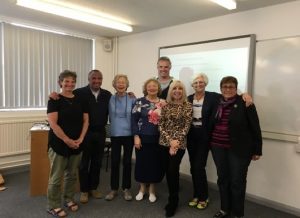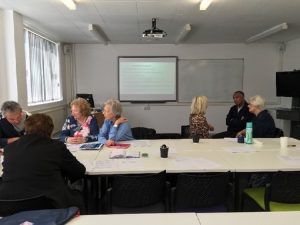In December 2012, the NHS launched a new initiative underpinned by a set of core values that its staff would endeavour to communicate and demonstrate to every patient using NHS services, be they paramedics, nurses, midwives, operating department practitioners or any other of the host of NHS roles.
This initiative was called “Compassion in Practice” and these values, known affectionately as ‘The Six C’s’, comprise of:
- Care
- Compassion
- Competence
- Communication
- Courage
- Commitment
Each has its own merits and is undoubtedly important in communicating to patients the value we place on human life, that is, their life.
As a lecturer on the paramedic science program, I have the privilege of working with some outstanding paramedic students, many of whom demonstrate these values on a daily basis.
However, what we also encounter, are stories of patients that are difficult to have compassion upon. We have stories of paramedic students being spat at, verbally abused, and attempts of physical assault, things that I have also experienced in my own clinical background.
According to NHS Protect, 70,555 NHS staff were assaulted in 2015-2016; a figure that reflects a steady increase in incidents since 2011.
What does this mean?
I take it to mean that NHS employees, and by extension, our students, are increasingly coming into contact with people that are difficult to have compassion on.
Synonyms of compassion include empathy, understanding, care, concern, sensitivity, warmth, love, tenderness, gentleness, consideration and kindness.
How can we possibly extend these qualities to those who sometimes express the complete opposite qualities towards us?
Well sometimes that is difficult, nigh-on impossible. And there are circumstances which should not be excused or belittled. Attacks on our NHS staff or students are never acceptable, and should never be tolerated.
But, is it possible, in dealing with and experiencing the ugly side of the job, that we lose something of our ability to have compassion on patients?
Possibly. I know I have encountered that challenge.
So how can we ensure that we maintain compassion?
Simple:
Tenacity(n) – “the quality of being very determined”
Synonyms: determination, perseverance, strength of will, resolve
I believe that as clinicians, we can commit to making compassion a non-negotiable quality of our practice. That regardless of our experiences, we can choose to rise above the ugly side of the job, and refuse to compromise on compassion.
That whatever circumstances we encounter, we can endeavour to make compassion a hallmark of our practice.
Compassion is an art form.
The ability to move on from difficult situations, from challenging patients, and greet the next person with warmth, gentleness, understanding and kindness is a challenging, yet beautiful thing.
Can I encourage you to practice the art of compassion.
And refuse to compromise on it.
Tim Davies, Paramedic Lecturer, Tim.Davies@staffs.ac.uk









